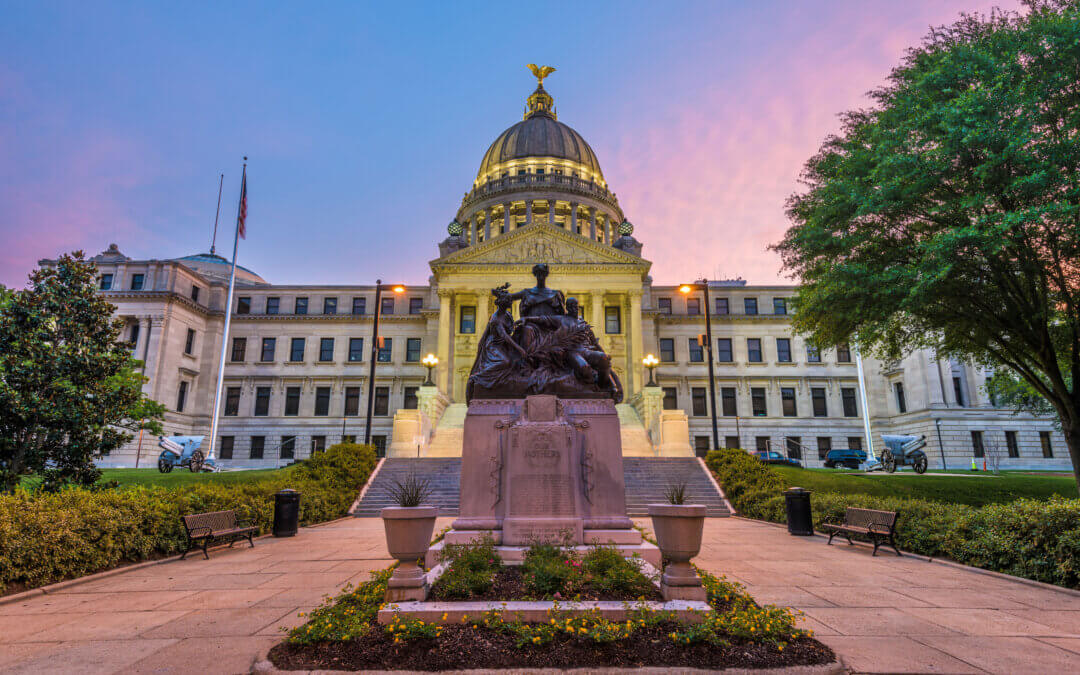This week, the Mississippi Legislature saw some tension between policymakers as a crucial deadline killed several key pieces of legislation. The deadline for general bills to move out of committee in the opposite chamber was Tuesday, April 2. With each chamber controlling the fate of bills the opposite chamber wanted, there was a lot of posturing on both ends of the Capitol and, by the end of the week, questions remained about how each chamber would respond.
In the final hours of deadline day, the Senate decided not to take up House Bill 1590, which dealt with finding a fix for the unfunded liability in the Public Employees Retirement System (PERS). The bill would have reconstituted the PERS Board adding appointments from the Governor and Lieutenant Governor. It would have also paused the scheduled increase in the employer contribution rate that was set to take effect this summer. Passage of the PERS bill was a top priority for Speaker Jason White (R-West) and the House of Representatives. In a press release from Speaker White on Tuesday, he stated “The Lt. Governor and Senate’s failure to address the long-term sustainability of our state’s retirement program is irresponsible to not only PERS retirees and participants in the system but Mississippi taxpayers.” When the Senate moved to not take up the bill, the House let several Senate priority bills die in committee and threatened to let more die on the calendar. The deadline for general bills to move from the floor in the opposite chamber is next Wednesday, April 10, so time will tell what the House will choose to take up.
Several priority education bills survived the committee deadline on Tuesday. HB 1229 would extend the repealer on the Equal Opportunity for Students with Special Needs Act. HB 1683 and Senate Bill 2690 both have code sections dealing with charter schools and could provide vehicles for the expansion of the charter school program. Along with these bills, there are also still two bills alive dealing with public education funding. The House and Senate are no closer in coming to an agreement on which funding formula will be chosen. The Senate favoring tweaks to the current Mississippi Adequate Education Program (MAEP) and the House favoring the new Investing in the Needs of Students to Prioritize, Impact and Reform Education (INSPIRE) funding formula. Governor Tate Reeves weighed in recently, tweeting his support of the House and the INSPIRE funding plan. Lt. Governor Delbert Hosemann and the Senate are holding firm to their support of the MAEP formula, while Speaker White doubled down in an interview this week stating that the House would not spend another dime on MAEP. With the Senate killing the PERS bill, this disagreement is likely to become more contentious as the Session moves on.
One bill that is a priority for business and industry that is still moving through the process is SB 2649 which would allow for companies to pay all necessary costs to contract out their permits rather than go through the process with the Mississippi Department of Environmental Quality (MDEQ). Mississippi is one of the few states that does not charge a fee for permits, which has always been an advantage to doing business in our state. However, due to a severe staffing issue at MDEQ caused by a financial inability to recruit and retain employees, there is a large backlog of permits holding up economic development across the state. SB 2649 passed the House this week by a vote of 114–0. Since the bill was amended in the House to include some reporting requirements so that the Legislature can make sure that the new arrangement is working as intended, it now returns to the Senate for concurrence or they can vote to invite conference.
Looking ahead to next week, the House and Senate will continue to debate general bills on the floor while also meeting to discuss budget and revenue numbers. The Joint Legislative Budget Committee is meeting soon to discuss adoption of a final revenue estimate for the Fiscal Year 2025 budgets. After this number is agreed upon, they will begin to move quickly on setting the state budgets. The House has already passed all of the budget bills the Senate sent them and returned them so that the Senate can invite conference. Most of the budgets will be agreed upon fairly easily, but a few like the Division of Medicaid, Department of Education and Department of Transportation could create some disagreement between the chambers. It is also unclear what funds will be available for special projects. Over the last few years the Legislature has used excess revenue in the Capitol Expense Fund to fund projects, but with some lingering high dollar policy issues still in flux, they may reserve those funds for future spending. There remains over $100 million in American Rescue Plan Act (ARPA) funds that need to be spent by the end of the year; HB 1983 is a vehicle that the House sent to the Senate and can be used to bond money for these projects. As of now, the Senate seems unlikely to issue any new bonds.

